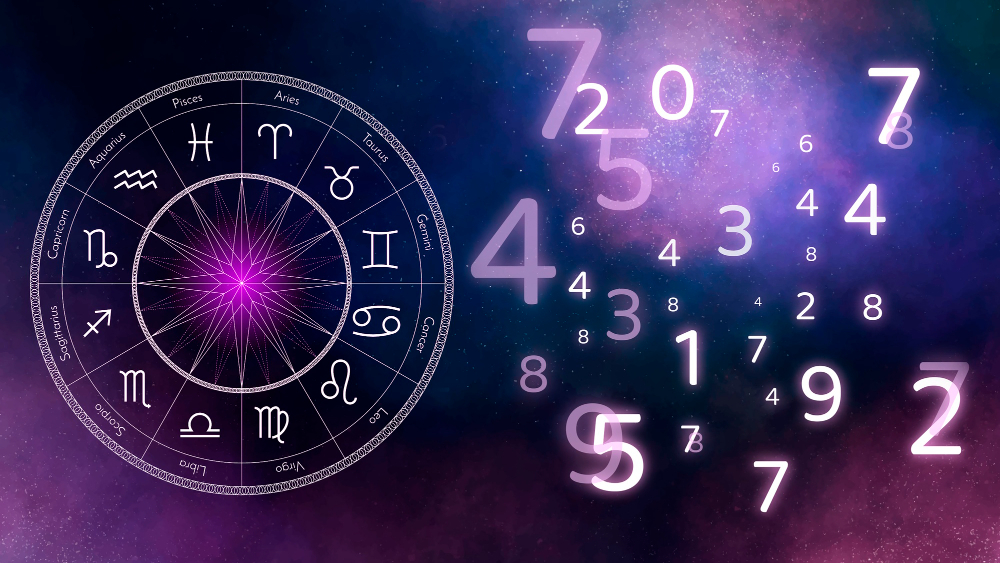
Have you ever wondered if numbers hold a deeper meaning beyond just counting? Have you ever looked at a specific sequence of digits and felt an inexplicable pull? Throughout history, civilizations around the world have explored this very concept, imbuing numbers with spiritual or mystical significance. This is the fascinating realm of numerology, a practice with roots that stretch back millennia. Today, we embark on a journey tracing the development of numerology, from the ancient Mesopotamian plains to the philosophies of the Greek mathematician Pythagoras.
Our story begins in Mesopotamia, the cradle of civilization that encompassed present-day Iraq, Kuwait, Syria, and Turkey. Here, amidst the Tigris and Euphrates rivers, flourished the brilliant civilizations of Babylon and Sumer. This innovative system, far superior to the base-10 system we use today, had a profound impact on various fields.
Babylonian astronomers meticulously tracked the movements of celestial bodies, using their sophisticated number system to map constellations and predict eclipses. This intricate dance of numbers and the cosmos fueled the belief that the universe itself operated according to a numerical order. Numbers weren't just abstract concepts; they held the key to understanding the divine and the workings of the universe.
The Mesopotamian love affair with numbers didn't stop at astronomy. Number symbolism permeated their daily lives and rituals. Specific numbers were considered lucky or unlucky, and certain calculations were used for divination practices. Kings and priests consulted numerologists to interpret omens and make crucial decisions. Numbers were seen as doorways to understanding one's fate and the will of the gods.

Moving from the sun-baked plains of Mesopotamia to the fertile Nile Valley, we encounter the Egyptians, another civilization deeply invested in the mystical properties of numbers. The Egyptians believed in a complex pantheon of gods and goddesses, and numbers played a crucial role in their understanding of the divine.
The number seven, for instance, held immense significance. It represented completion, as reflected in the seven days of creation and the seven gates of the underworld. Pyramids, those awe-inspiring monuments that continue to captivate us, were designed with precise numerical relationships, reflecting the Egyptians' belief in the harmony between the physical world and the divine realm. Notably, the ratio of a pyramid's base to its height often aligns with pi, hinting at a deeper understanding of mathematical concepts.
Fast forward a few thousand years, and we find ourselves in ancient Greece, where the philosopher Pythagoras emerges as a pivotal figure in the development of number mysticism. Pythagoras wasn't just a thinker; he was a mathematician whose famous theorem (a² + b² = c²) remains a cornerstone of geometry. But Pythagoras saw beyond the practical applications of numbers. He believed numbers held the key to unlocking the secrets of the universe.
Central to his philosophy was the concept of the "harmony of the spheres." Pythagoras believed the celestial bodies moved according to mathematical principles, creating a symphony inaudible to the human ear. Each planet, according to him, emitted a specific tone, and the harmonious arrangement of these tones formed the "music of the spheres." This notion linked mathematics, music, and astronomy in a beautiful tapestry, further solidifying the mystical power of numbers.
Pythagoras wasn't alone in his fascination with numbers. He established a school that attracted students from all walks of life. Within this intellectual haven, students delved into the mystical properties of numbers, exploring their relationships with geometry, music, and the cosmos. Even today, this method, a system that assigns meaning to numbers, is used by some as a tool for self-discovery. This interest aligns with the practices of Tarot Card Readers in Kolkata, who use cards and interpret insights into life's journey. The Pythagorean school's influence extended beyond Greece, shaping Western philosophical thought for centuries to come.
Our journey through the history of this method has taken us from the ancient Mesopotamian plains to the bustling intellectual centers of Greece. We've witnessed how different cultures imbued numbers with profound meaning, using them to understand the universe, predict the future, and connect with the divine.
Today, this method continues to intrigue people around the world. Some see it as a fascinating relic of the past, a window into the beliefs of ancient civilizations. Others find it a tool for self-discovery, a way to understand their personalities, strengths, and potential challenges through the lens of numbers. Whether you view it with skepticism or curiosity, this method's rich history and enduring appeal are undeniable.
The story of this method doesn't end with Pythagoras. The practice has undergone various interpretations and adaptations throughout history. Here, we delve into some of its modern expressions:
It's important to acknowledge the lack of scientific evidence to support the core beliefs. The effectiveness of this method in predicting the future or offering definitive insights into personality remains unproven. However, the practice can be a valuable tool for introspection and self-reflection.
If you're curious about this method, treat it as a self-exploration tool rather than a definitive guide to your life. There are numerous resources available online and in libraries to delve deeper into different systems and their interpretations. Remember, while numbers might hold symbolic meaning, ultimately, you are the author of your own story.
From the star charts of Babylonian astronomers to the philosophical musings of Pythagoras, numbers have captivated humans for millennia. Whether viewed as a mystical language or a fascinating historical practice, numerology offers a unique lens through which we can contemplate the universe, ourselves, and the connections between them.
So, you've been bitten by this method bug and want to explore further? Here are some ways to delve deeper into this multifaceted practice:
For personalized insights, consider consulting a Numerologist. They can provide a detailed reading based on your specific birth date, name, and life path numbers. Remember, a reputable practitioner will focus on empowering you with self-awareness, not dictating your future.
There's a wealth of information available online and in libraries. Look for reputable websites, books, and articles that explain different systems and their interpretations.
Many websites offer free Number symbolism calculators. Use these tools to explore your core numbers, compatibility with others, and lucky days based on specific numerology systems. Remember, these calculators provide a starting point; a deeper understanding comes through focused exploration.
Once you gain a basic understanding, try incorporating this method into your daily life in a way that feels meaningful. Some ideas include:
Note: Numerology is a journey of exploration, not a set of rigid rules. Approach it with an open mind, a sense of curiosity, and a healthy dose of skepticism. Let the language of numbers guide your self-discovery while remaining the captain of your ship.
Numerology, with its rich history and diverse interpretations, offers a unique perspective on the world around us. Whether you find it a tool for self-exploration or a captivating glimpse into ancient belief systems, its enduring allure lies in the way it connects us to the power and mystery of numbers. So, embark on your Number symbolism adventure, and see where the fascinating world of numbers takes you.

Dr. Rajnee Garg Kesri is a certified Tarot Card Reader, Numerologist and a SPIRITUAL HEALER. She...

Need help with designing your brand new best or you have any idea and thinking of getting it’s branding done then get a FREE quote today.
Call Us 83358 37666. Send an Email on soulvio15@gmail.com, healtheworld15@gmail.com.
Meridian Splendora, 9/1A, Umakanta Sen Lane, Birpara, Kolkata, West Bengal 700030
© Copyright . All rights Reserved.
Digital Marketing By SEO Villas Private Limited
WhatsApp Us